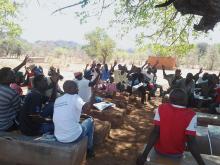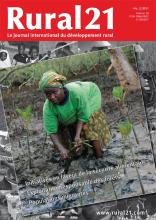Land Library
Welcome to the Land Portal Library. Explore our vast collection of open-access resources (over 74,000) including reports, journal articles, research papers, peer-reviewed publications, legal documents, videos and much more.
/ library resources
Showing items 1 through 9 of 17.This article explores the ways in which (a) Indigenous youth involved in an HIV intervention took up and reclaimed their cultures as a project of defining ‘self’, and (b) how Indigenous ‘culture’ can be used as a tool for resistance, HIV prevention and health promotion.
Indigenous Peoples and local communities hold a large share of the world’s land area under customary systems. However, there is a tremendous gap between what is held by communities in practice and what is formally recognised by governments.
Marked power imbalances often result in communities losing out in use conflicts over their territories and resources. This applies in particular to extractive industries and infrastructure projects.
Providing extension and advisory services is expensive. There are salaries to be paid, transportation and operational funds to be provided, buildings to be rented or built, demonstration plots to maintain, and continued education to be offered to the extension staff.
This article explores strategies for engaging geographically fragmented urban communities as active participants in conceptually re-mapping their former localities.
This article explores strategies for engaging geographically fragmented urban communities as active participants in conceptually re-mapping their former localities.
L’urbanisation est souvent considérée comme ayant des effets néfastes sur le développement rural. En fait, c’est tout le contraire.
This paper argues that contemporary development policies have failed to solve the problem of the maldistribution of economic resources, poverty, underemployment, and skewed income distribution. With the collapse of the Lomé Convention in 1996, St.
This paper examines the effects of an international service-learning course with a strong human rights component. Human rights have social justice as an essential component and advancing both are considered core competencies in social work.





